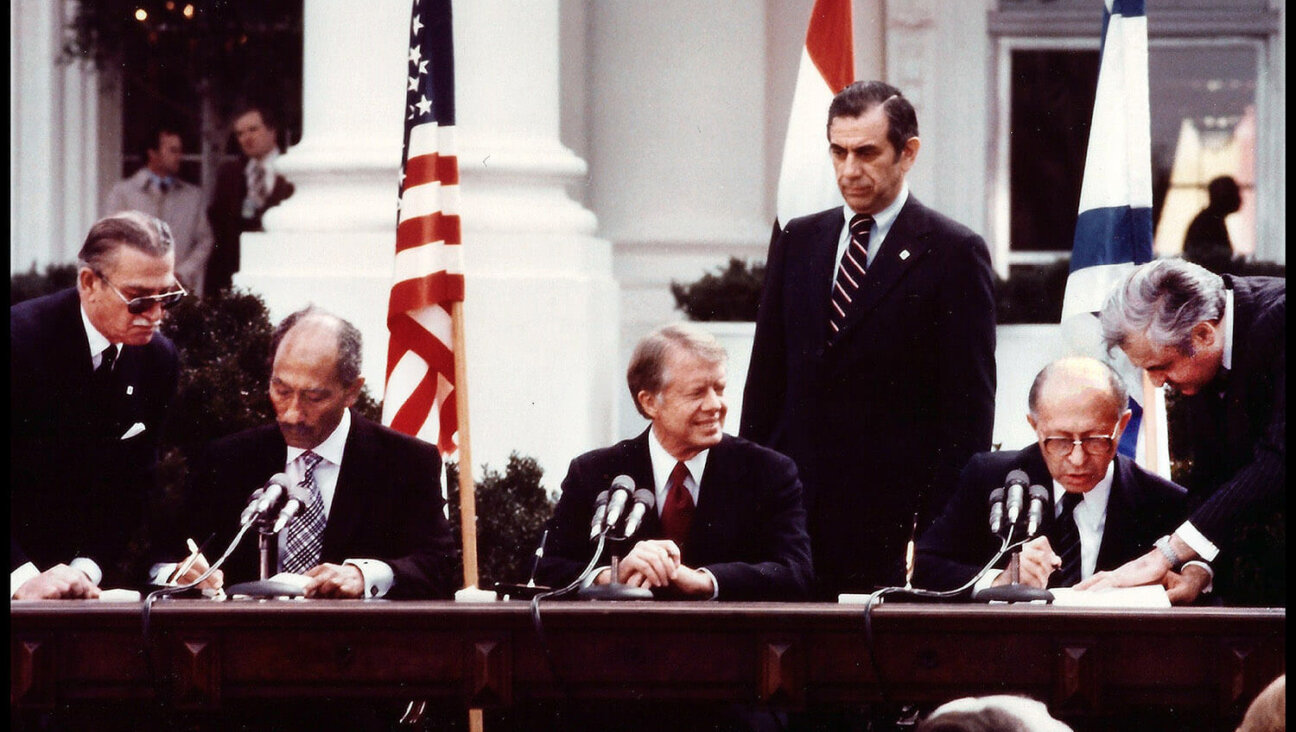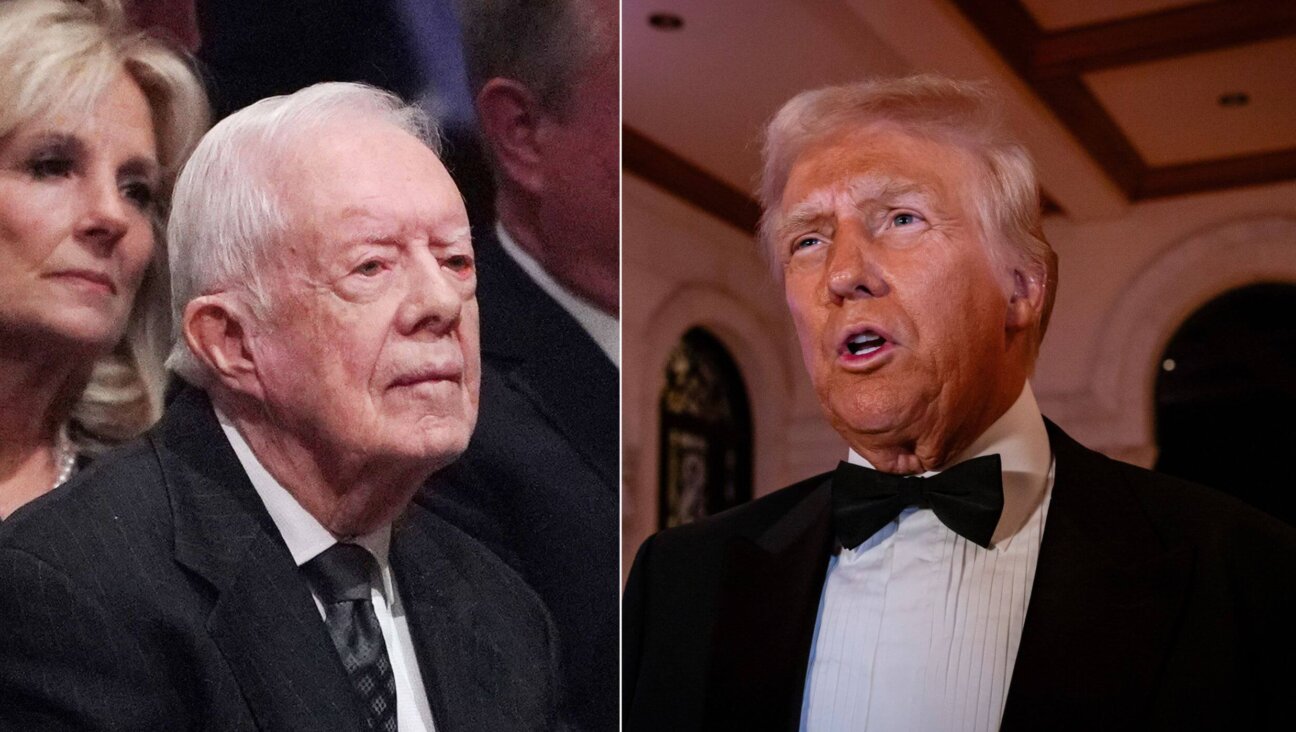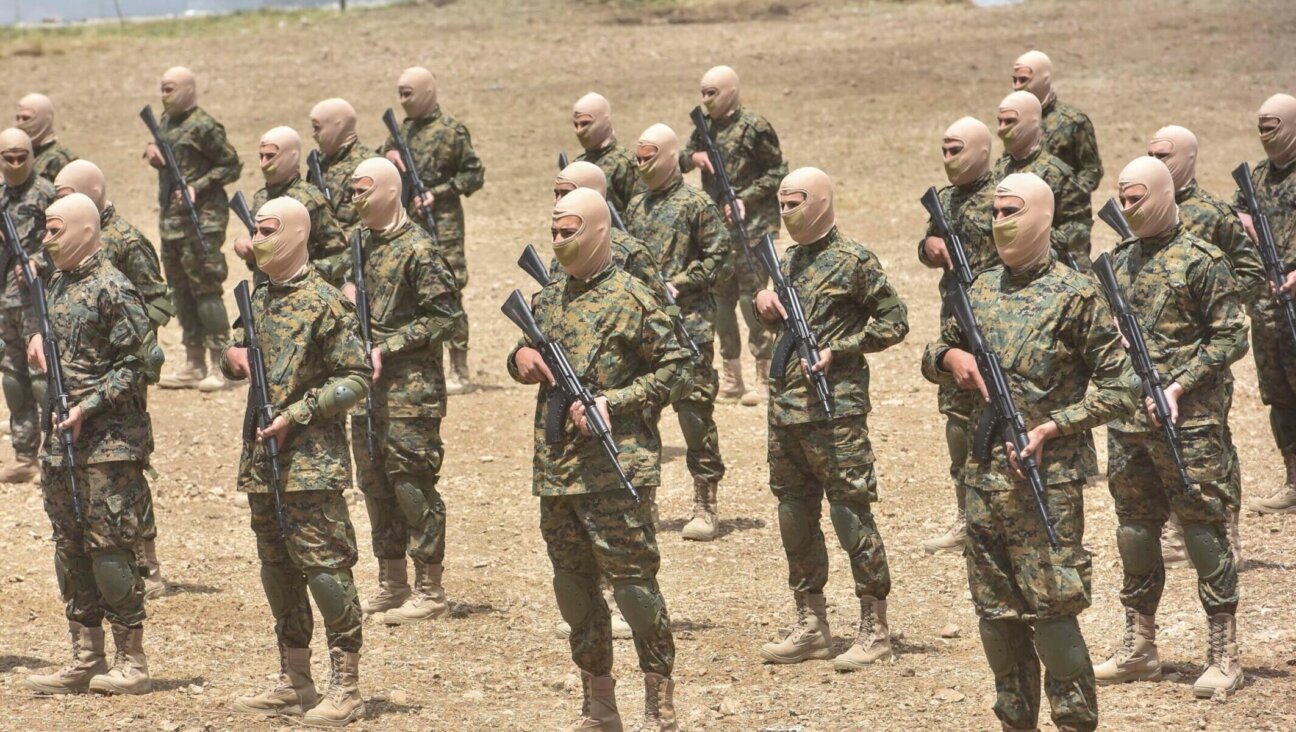Orthodox Push Case of Jailed Businessman

Image by wikicommons
Gathered outside a Bolivian diplomatic office in New York, several hundred Jewish protesters raised signs and chanted slogans calling for the release of Jacob “Yankel” Ostreicher, a Brooklyn businessman held without charge for a year in the South American nation.
A video of the May 3 demonstration reveals a sea of yarmulkes and black hats. Women stood at the far end of the protest, not mixing with the men.

Jacob Ostreicher Image by courtesy of free jacob ostreicher
The rally strikingly illustrated the fact that the Orthodox and Hasidic communities have spearheaded efforts to protest Ostreicher’s imprisonment while the rest of the Jewish community has largely stood silently.
The Ostreicher case, which has begun to gain national attention in recent months, has posed a dilemma to Jewish organizations: Are the arrest and detention of an American Jew without charge or trial cause for mobilizing the community? Or should Jewish activism kick in only in clear cases of anti-Semitism and anti-Jewish bias?
Mainstream groups clearly think they should stay out of the Ostreicher fight.
“The factors that would activate traditional defense organizations to take action are absent in this case,” said Michael Salberg, director of international affairs at the Anti-Defamation League. While expressing humanitarian concerns over Ostreicher’s fate, Salberg noted that there is no evidence of the businessman being singled out because of his Jewish faith.
Bolivian authorities arrested Ostreicher, a 53-year-old flooring contractor from Boro Park, in June 2011 when he was visiting a rice farm in which he had invested and that he oversees. Bolivian prosecutors alleged he was involved in money laundering, but no charges have been filed. A hearing scheduled for June 11 was postponed, as have many previous hearings.
Ostreicher is being held in the notorious Palmasola prison, a large facility that holds accused murderers and drug dealers. Press reports say Palmasola is run largely by the prisoners themselves and that Ostreicher, who was recently visited by an reporter from ABC’s “Nightline,” had to pay to rent a cell in prison. He is the only American, and the only observant Jew, in Palmasola.
“I’m absolutely 100% innocent,” Ostreicher said in the interview, after eating matzo and kosher food brought to him by his wife during Passover.
After his arrest, Ostreicher’s family tried making private appeals to Bolivian authorities in order to win his release. But after months without progress, the family turned to American lawmakers, the media and human rights organizations. The ultimate goal is to get the U.S. State Department to pressure the government in La Paz to bring an end to his ordeal.
Ostreicher’s case was the subject of a June 6 hearing of the House subcommittee on human rights. New York senators Kirsten Gillibrand and Charles Schumer had expressed their support for Ostreicher’s release, and a petition calling for intervention from the United States is gaining signatures.
The Jewish community, however, has thus far been slow to respond.
Ultra-Orthodox community activists were the first to take action for Ostreicher and are still the backbone of the campaign to free him. The Orthodox Union has also recently expressed its willingness to take on the case.
New York Assemblyman Dov Hikind, the driving force behind recent protests and petitions, said that engaging the Jewish community in the Ostreicher case is an “ongoing process” and that he intends to reach out to Conservative and Reform activists in the near future.
“I don’t want this to be about the Orthodox community,” he said. “It is about an American citizen rotting in prison.” According to Hikind, public attention to Ostreicher is protecting him and ensuring that he is not harmed in prison.
Even Orthodox activists agree that the arrest of the Brooklyn businessman has nothing to do with his Jewish faith. Ostreicher, some experts believe, has fallen victim to corrupt government and law enforcement systems motivated by bribes and criminal connections. Former FBI agent Steve Moore, who worked on similar cases, described the Ostreicher affair, during the congressional hearing on the issue, as a “state-sponsored kidnapping.”
Mainstream groups say the case does not cross the threshold for getting the broader Jewish community actively involved. The American Jewish Committee recently hosted in Washington the president of Bolivia’s tiny Jewish community, which apparently is not concerned that the Ostreicher case could have any impact on it.
“Bolivia, which does not have diplomatic relations with Israel and maintains close ties with Iran, does many things that concern us,” said Dina Siegel Vann, director of the AJC’s Latino and Latin American Institute, “But we do not see there anti-Semitism of the kind we’ve seen in Venezuela.”
Salberg said that in order for the Jewish community to take on a case such as the Ostreicher arrest, it should have either been motivated by anti-Semitism or have had a direct impact on the local Jewish community. Ostreicher was not in touch with the Bolivian Jewish community, which is mainly Reform and Conservative, during the time he did business in the country, and local leaders did not express concern that his arrest will affect their community.
Another Jewish official, who asked not to be named due to the sensitivity of the issue, warned of making Ostreicher into a diplomatic issue in relations between the United States and Bolivia. “The U.S. has very difficult relations with Bolivia, and we don’t need another issue on the table,” the official said.
Several officials distinguished the Ostreicher case from that of Alan Gross, another prominent Jewish prisoner in Latin America. The Jewish community has, in the past year, thrown its weight behind efforts to release Gross, a Jewish contractor for the U.S. government serving a 15-year prison term in Cuba.
Salberg said Gross’s case was very different, since Gross’s stated mission was to assist the Cuban Jewish community. Ostreicher, on the other hand, was in Bolivia on his own private business and had nothing to do with the community there. Another activist warned against making Ostreicher “a second Alan Gross,” fearing that an organized campaign would prompt the Bolivian government to raise the price for his release.
Contact Nathan Guttman at [email protected]
A message from our Publisher & CEO Rachel Fishman Feddersen

I hope you appreciated this article. Before you go, I’d like to ask you to please support the Forward’s award-winning, nonprofit journalism so that we can be prepared for whatever news 2025 brings.
At a time when other newsrooms are closing or cutting back, the Forward has removed its paywall and invested additional resources to report on the ground from Israel and around the U.S. on the impact of the war, rising antisemitism and polarized discourse.
Readers like you make it all possible. Support our work by becoming a Forward Member and connect with our journalism and your community.
— Rachel Fishman Feddersen, Publisher and CEO























